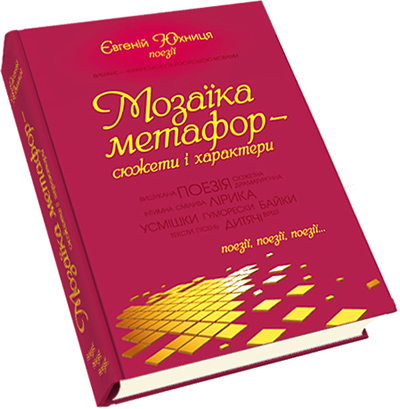Тексти шкільної літератури
США. Commentary on Galatians
PREFACE
THE preparation of this edition of Luther’s Commentary on Galatians was first suggested to me by
Mr. P. J. Zondervan, of the firm of publishers, in March, . The consultation had the twofold
merit of definiteness and brevity.
“Luther is still the greatest name in Protestantism. We want you to help us publish some leading
work of Luther’s for the general American market. Will you do it?”
“I will, on one condition.”
“And what is that?”
“The condition is that I will be permitted to make Luther talk American, ‘streamline’ him, so
to speak—because you will never get people, whether in or outside the Lutheran Church, actually
to read Luther unless we make him talk as he would talk today to Americans.”
I illustrated the point by reading to Mr. Zondervan a few sentences from an English translation
lately reprinted by an American publisher, of one of Luther’s outstanding reformatory essays.
The demonstration seemed to prove convincing for it was agreed that one may as well offer
Luther in the original German or Latin as expect the American church-member to read any
translations that would adhere to Luther’s German or Latin constructions and employ the
Mid-Victorian type of English characteristic of the translations now on the market.
“And what book would be your choice?”
“There is one book that Luther himself like better than any other. Let us begin with that: his
Commentary on Galatians . . .”
The undertaking, which seemed so attractive when viewed as a literary task, proved a most
difficult one, and at times became oppressive. The Letter to the Galatians consists of six short
chapters. Luther’s commentary fills seven hundred and thirty-three octavo pages in the Weidman
Edition of his works. It was written in Latin. We were resolved not to present this entire mass of
exegesis. It would have run to more than fifteen hundred pages, ordinary octavo (like this), since
it is impossible to use the compressed structure of sentences which is characteristic of Latin, and
particularly of Luther’s Latin. The work had to be condensed. German and English translations are
available, but the most acceptable English version, besides laboring under the handicaps of an
archaic style, had to be condensed into half its volume in order to accomplish the “streamlining”
of the book. Whatever merit the translation now presented to the reader may possess should be
written to the credit of Rev. Gerhardt Mahler of Geneva, N.Y., who came to my assistance in a
very busy season by making a rough draft of the translation and later preparing a revision of it,
which forms the basis of the final draft submitted to the printer.
A word should now be said about the origin of Luther’s Commentary on Galatians.
The Reformer had lectured on this Epistle of St. Paul’s in and again in . It was his
favorite among all the Biblical books. In his table talks the saying is recorded: “The Epistle to the
Galatians is my epistle. To it I am as it were in wedlock. It is my Katherine.” Much later when a
friend of his was preparing an edition of all his Latin works, he remarked to his home circle: “If I
had my way about it they would republish only those of my books which have doctrine. My
Galatians, for instance.”
The lectures which are preserved in the works herewith submitted to the American public were
delivered in . They were taken down by George Roerer, who held something of a deanship at
Wittenberg University and who was one of Luther’s aids in the translation of the Bible. Roerer
took down Luther’s lectures and this manuscript has been preserved to the present day, in a copy
which contains also additions by Veit Dietrich and by Cruciger, friends of Roerer’s, who with him
attended Luther’s lectures. In other words, these three men took down the lectures which Luther
addressed to his students in the course of Galatians, and Roerer prepared the manuscript for the
printer. A German translation by Justus Menius appeared in the Wittenberg Edition of Luther’s
writings, published in .
One cannot discuss this famous document of the Reformation Age without adverting of the
experience of John Bunyan. Greatly afflicted on account of his “original and inward pollution” and
wretched in the knowledge of his transgressions, Bunyan looked around for some ancient work
that might satisfy him. He had found that the writers of his own day had not gone “down themselves
into the deep.” Rummaging around he found an old copy, ready to fall to pieces, of Martin Luther’s
Commentary on Galatians. He says “When I had but a little way perused, I found my condition in
his experience so largely and profoundly handled, as if his book had been written out of my heart.
I prefer this book of Martin Luther on the Galatians (excepting the Holy Bible) before all the books
that ever I have seen, as most fit for a wounded conscience.”
The importance of this Commentary on Galatians for the history of Protestantism is very great.
It presents like no other of Luther’s writings the central thought of Christianity, the justification of
the sinner for the sake of Christ’s merits alone. We have permitted in the final revision of the
manuscript many a passage to stand which seemed weak and ineffectual when compared with the
trumpet tones of the Latin original. But the essence of Luther’s lectures is there. May the reader
accept with indulgence where in this translation we have gone too far in modernizing Luther’s
expression—making him “talk American.” And may the divine blessing rest upon this, we trust,
even in its new dress, eloquent disquisition of Martin Luther on those central doctrines upon which
the Christian church depends for its inner life and for success in its evangelical mission.
At the end of his lectures in , Luther uttered a brief prayer and then dictated two Scriptural
texts, which we shall inscribe at the end of these introductory remarks:
“The Lord who has given us power to teach and to hear, let Him also give us the power to serve
and to do.”
LUKE
Glory to God in the highest,
And on earth peace,
Good will to men.
ISAIAH
The Word of our God
shall stand forever.
Theodore Graebner
St. Louis, Missouri
FROM LUTHER’S INTRODUCTION,
In my heart reigns this one article, faith in my dear Lord Christ, the beginning, middle
and end of whatever spiritual and divine thoughts I may have, whether by day or by night.
When men claiming such credentials come along, they deceive not only the naive, but also
those who seemingly are well-established in the faith. This same argument is used by the papacy.
“Do you suppose that God for the sake of a few Lutheran heretics would disown His entire Church?
Or do you suppose that God would have left His Church floundering in error all these centuries?”
The Galatians were taken in by such arguments with the result that Paul’s authority and doctrine
were drawn in question.
Against these boasting, false apostles, Paul boldly defends his apostolic authority and ministry.
Humble man that he was, he will not now take a back seat. He reminds them of the time when he
opposed Peter to his face and reproved the chief of the apostles.
Paul devotes the first two chapters to a defense of his office and his Gospel, affirming that he
received it, not from men, but from the Lord Jesus Christ by special revelation, and that if he or an
angel from heaven preach any other gospel than the one he had preached, he shall be accursed.
Every minister should make much of his calling and impress upon others the fact that he has
been delegated by God to preach the Gospel. As the ambassador of a government is honored for
his office and not for his private person, so the minister of Christ should exalt his office in order
to gain authority among men. This is not vain glory, but needful glorying.
Paul takes pride in his ministry, not to his own praise but to the praise of God. Writing to the
Romans, he declares, “Inasmuch as I am the apostle of the Gentiles, I magnify mine office,” i.e., I
want to be received not as Paul of Tarsus, but as Paul the apostle and ambassador of Jesus Christ,
fanatics of our day pronounce words of faith, but they bear no good fruit, because their purpose is
to turn men to their perverse opinions. On the other hand, those who have a divine call must suffer
a good deal of opposition in order that they may become fortified against the running attacks of
the devil and the world.
This is our comfort in the ministry, that ours is a divine office to which we have been divinely
called. Reversely, what an awful thing it must be for the conscience if one is not properly called.
It spoils one’s best work. When I was a young man I thought Paul was making too much of his
call. I did not understand his purpose. I did not then realize the importance of the ministry. I knew
nothing of the doctrine of faith because we were taught sophistry instead of certainty, and nobody
understood spiritual boasting. We exalt our calling, not to gain glory among men, or money, or
satisfaction, or favor, but because people need to be assured that the words we speak are the words
of God. This is no sinful pride. It is holy pride.
VERSE . And God the Father, who raised him from the dead.
Paul is so eager to come to the subject matter of his epistle, the righteousness of faith in
opposition to the righteousness of works, that already in the title he must speak his mind. He did
not think it quite enough to say that he was an apostle “by Jesus Christ”; he adds, “and God the
Father, who raised him from the dead.”
man had preached before as Paul and the other apostles did. But they came to the churches of
Galatia, knowing that where men profess the name of Christ they may feel secure.
It is the lot of God’s ministers not only to suffer opposition at the hand of a wicked world, but
also to see the patient indoctrination of many years quickly undone by such religious fanatics. This
hurts more than the persecution of tyrants. We are treated shabbily on the outside by tyrants, on
the inside by those whom we have restored to the liberty of the Gospel, and also by false brethren.
But this is our comfort and our glory, that being called of God we have the promise of everlasting
life. We look for that reward which “eye hath not seen, nor ear heard, neither hath entered into the
heart of man.”
Jerome raises the question why Paul called them churches that were no churches, inasmuch as
the Galatians had forsaken the grace of Christ for the law of Moses. The proper answer is: Although
the Galatians had fallen away from the doctrine of Paul, baptism, the Gospel, and the name of Christ
continued among them. Not all the Galatians had become perverted. There were some who clung
to the right view of the Word and the Sacraments. These means cannot be contaminated. They
remain divine regardless of men’s opinion. Wherever the means of grace are found, there is the
Men Should Not Speculate About the Nature of God
The Apostle adds to the salutation the words, “and from our Lord Jesus Christ.” Was it not
enough to say, “from God the Father”?
It is a principle of the Bible that we are not to inquire curiously into the nature of God. “There
shall no man see me, and live,” Exodus : . All who trust in their own merits to save them
disregard this principle and lose sight of the Mediator, Jesus Christ.
True Christian theology does not inquire into the nature of God, but into God’s purpose and
will in Christ, whom God incorporated in our flesh to live and to die for our sins. There is nothing
more dangerous than to speculate about the incomprehensible power, wisdom, and majesty of God
when the conscience is in turmoil over sin. To do so is to lose God altogether because God becomes
intolerable when we seek to measure and to comprehend His infinite majesty.
The Arians were sharp fellows. Admitting that Christ had two natures, and that He is called
“very God of very God,” they were yet able to deny His divinity. The Arians took Christ for a noble
and perfect creature, superior even to the angels, because by Him God created heaven and earth.
Mohammed also speaks highly of Christ. But all their praise is mere palaver to deceive men. Paul’s
language is different. To paraphrase him: “You are established in this belief that Christ is very God
because He gives grace and peace, gifts which only God can create and bestow.”
easily taken care of by good works; that we must present ourselves unto God with a good conscience;
that we must feel no sin before we may feel that Christ was given for our sins.
This attitude is universal and particularly developed in those who consider themselves better
than others. Such readily confess that they are frequent sinners, but they regard their sins as of no
such importance that they cannot easily be dissolved by some good action, or that they may not
appear before the tribunal of Christ and demand the reward of eternal life for their righteousness.
Meantime they pretend great humility and acknowledge a certain degree of sinfulness for which
they soulfully join in the publican’s prayer, “God be merciful to me a sinner.” But the real
significance and comfort of the words “for our sins” is lost upon them.
The genius of Christianity takes the words of Paul “who gave himself for our sins” as true and
efficacious. We are not to look upon our sins as insignificant trifles. On the other hand, we are not
to regard them as so terrible that we must despair. Learn to believe that Christ was given, not for
For this reason I am so anxious for you to gain a true picture of Christ out of the words of Paul
“who gave himself for our sins.” Obviously, Christ is no judge to condemn us, for He gave Himself
for our sins. He does not trample the fallen but raises them. He comforts the broken-hearted.
Otherwise Paul should lie when he writes “who gave himself for our sins.”
I do not bother my head with speculations about the nature of God. I simply attach myself to
the human Christ, and I find joy and peace, and the wisdom of God in Him. These are not new
truths. I am repeating what the apostles and all teachers of God have taught long ago. Would to
God we could impregnate our hearts with these truths.
VERSE . That he might deliver us from this present evil world.
Середня оцінка :

13 коментарів :
написав :
You bear through a awesome vacancy. I sanity definitely quarry it moreover personally suggest to my buddys. I am self-possessed they determination be benefited from this scene. 성기확대





написав :
Any time you are exploring the net occasionally I find a web site which is usually fairly thought invoking like this one. I want to state that I discovered the information on your web page has been rather interesting and I learnt new things. I'll be certain to watch out for the following article.. Thanks for this fantastic post I will come again in the future. cheap charlie's Tree service





написав :
I understand this column. I realize You put a many of struggle to found this story. I admire your process. araç kiralama





написав :
Excellent read, Positive site, where did u come up with the information on this posting?I have read a few of the articles on your website now, and I really like your style. Thanks a million and please keep up the effective work. mersin araç kiralama





написав :
I simply want to tell you that I am new to weblog and definitely liked this blog site. Very likely I’m going to bookmark your blog . You absolutely have wonderful stories. Cheers for sharing with us your blog. pretty gaming





написав :
I understand this column. I realize You put a many of struggle to found this story. I admire your process. ดูบาสออนไลน์





написав :
Thanks for writing such a good article, I stumbled onto your blog and read a few post. I like your style of writing... ketqua.tv





написав :
It has completely risen to crown Singapore's southern shores and without a doubt set her on the worldwide guide of private historic points. Regardless I scored the a bigger number of focuses than I ever have in a season for GS. I figure you would be unable to discover someone with a similar consistency I have had throughout the years so I am content with that. 전주토닥이

написав :
All-natural skincare and wellness neem products for everyone. Our ancestors have used it for years. Why bet against history? neem oil

написав :
We are approved seller of several trusted and popular pharmaceutical companies and we only sell 100% legit medications. We carry wide range of most popular products. The quality of our products is our primary goal, all our products are 100% original coming directly from world famous medicine distributors. We offer the best customer support, our team is always available to answer all your questions and your preoccupations. We offer you discreet, guaranteed and fast delivery of our products. dmt-crystal

написав :
In the wake of perusing your article I was stunned. I realize that you clarify it exceptionally well. What's more, I trust that different perusers will likewise encounter how I feel in the wake of perusing your article. 카지노사이트

Залишити коментар :




Найважливіше
з теорії детективу!
Знайомтеся з цікавими статтями і доповнюйте рубрику своїми теоріями та практичними історіями. Чекаємо на ваші листи за адресою: lit-jur-dnipro-zav.proza@kas-ua.com
ОГОЛОШЕННЯ
До уваги передплатників!
Друкована та електронна версії журналу «Дніпро» виходять щомісячно!
Передплатити журнали можна:
на сайті:
www.dnipro-ukr.com.ua;
за телефоном:
(044) 454-12-80;
у відділеннях «Укрпошти».

ЦИТАТА ДНЯ
«Текст – це лише пікнік, на який автор приносить слова, а читачі – сенс»
(Цвєтан Тодоров)

УВАГА!!!
Пропонуємо всім охочим узяти участь у написанні літературно-критичних статей про нобелівських лауреатів.
Чекаємо на ваші роботи про Томаса Еліота до 31 липня 2016 року.
Найкращу статтю буде опубліковано на сторінках журналу.
Роботи надсилайте за адресою: lit-jur-dnipro-zav.proza@kas-ua.com (із позначкою "Нобелівка").







